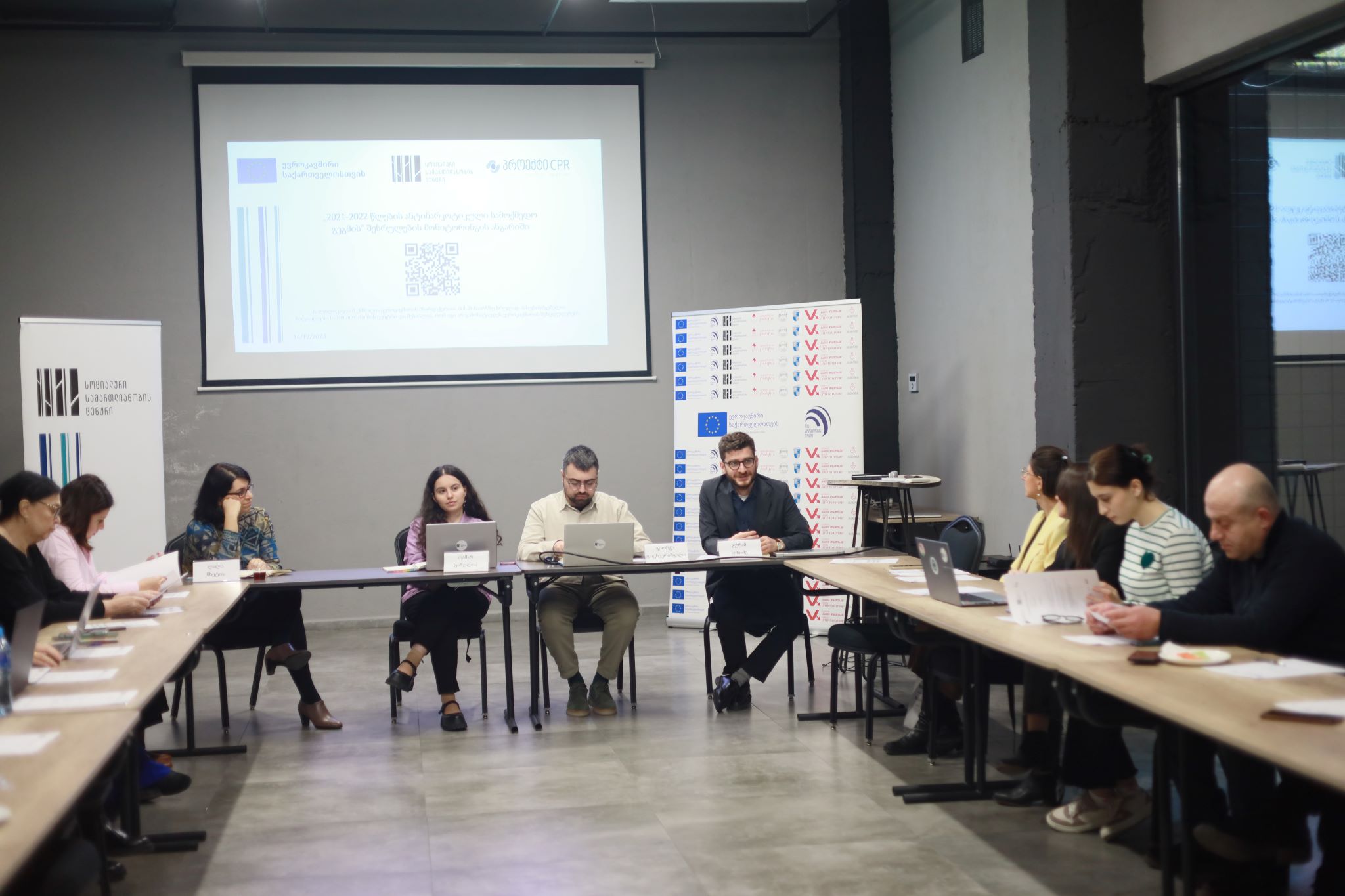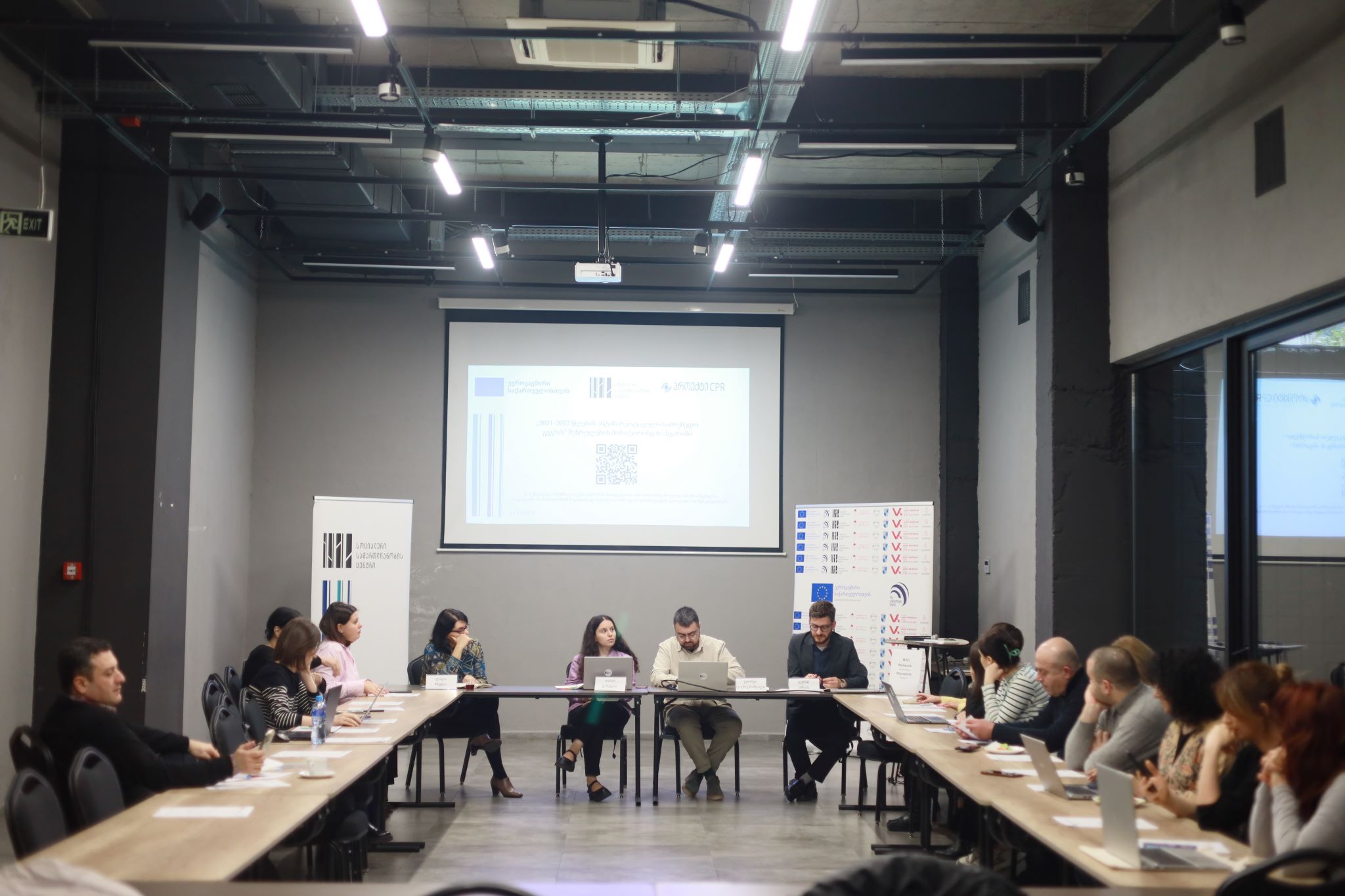A series of pivotal meetings convened in Georgia throughout 2023 marked a significant step forward in the campaign to promote effective and humane drug policies across Eastern and Central Europe and Central Asia. These meetings have been organized to bolster the adoption of documents crafted on the foundation of the Guiding Principles Towards Effective and Humane Drug Policies, as developed by The Eastern and Central European and Central Asian Commission on Drug Policy. On December 14, 2023, a new one was hosted by The Social Justice Center.
Central to the focus for organizations such as the Eurasian Harm Reduction Association (EHRA) and the Social Justice Center was the imperative to enact reforms concerning the deprivation of civil rights for individuals involved in drug-related offenses. At the inception of the project, the Social Justice Center embarked on an exhaustive examination of recent legislative changes and policy shifts in drug laws. This comprehensive process entailed meticulous scrutiny of statistical data sourced from key governmental bodies, including the Ministry of Internal Affairs (MIA), the Prosecutor’s Office, and the judiciary. Of particular import was the detailed analysis of statistical indicators about the deprivation of civil rights for individuals convicted of drug offenses. The result of these efforts materialized in the development of the Annual Drug Policy Report for 2022.
A pivotal outcome of this intensive research and advocacy was the formulation of the policy document titled “Deprivation of Rights for Drug-Related Crimes” and the accompanying draft legislation aimed at amending the “Law of Georgia on Combating Drug-Related Crimes.” These critical documents were extensively deliberated upon during the meeting convened on December 14th. The “Deprivation of Rights for Drug-Related Crimes” document represented a groundbreaking initiative, drawing upon insights gleaned from individuals directly impacted by the practice of civil rights deprivation. Notably, it constituted the inaugural systematic analysis of the prevailing framework governing rights deprivation for individuals convicted of drug-related offenses, informed by both legislative scrutiny and qualitative data derived from firsthand experiences.
The draft legislation, designed to introduce substantive changes to the existing legal framework, targeted two primary areas for reform:
- Duration of Deprivation of Rights: proposals were advanced to revise the length of time for which individuals could be deprived of their civil rights.
- Judicial Discretion: Advocates underscored the need to transition from a blanket approach to rights deprivation towards a more nuanced system guided by judicial discretion.
Furthermore, the draft legislation aimed to afford individuals subject to administrative penalties the opportunity to seek restoration of their deprived rights before the expiration of the designated term. In pursuit of broad-based support for these transformative legal initiatives, the Social Justice Center engaged in substantive discussions with representatives from three major political parties, seeking to foster collaboration and garner endorsement for the proposed reforms.
As the momentum for change continues to gather pace, the concerted efforts of stakeholders across the region underscore a resolute commitment to advancing equitable and rights-based drug policies, laying the groundwork for a just and equal future.


